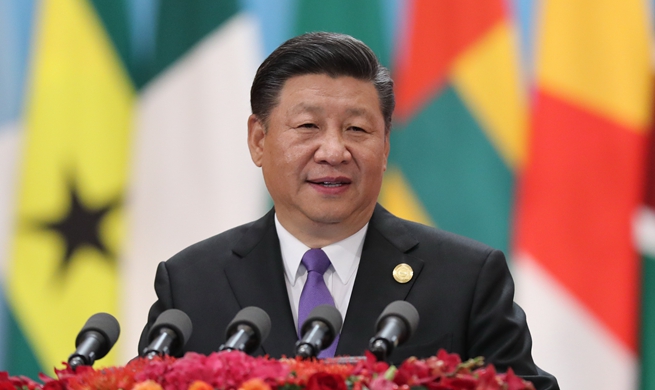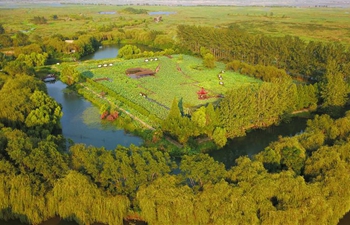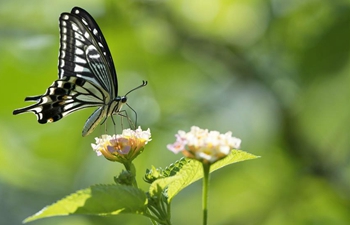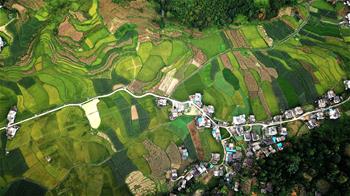SHENZHEN, Sept. 5 (Xinhua) -- China has called for beefing up global cooperation and increasing investment for better protection of snow leopards.
Li Chunliang, deputy director of China's State Forestry and Grassland Administration, made the call at an International Conference for Snow Leopard Conservation that opened in the southern Chinese city of Shenzhen Tuesday.
Representatives from 12 countries, including China, India and Russia, and relevant international organizations are attending the three-day event.
Li called on the countries to increase attention and investment on protection efforts and asked the international community to provide funds and technical assistance.
"China will continue to boost protection of snow leopards and their habitats," said Li, adding that the country will explore establishing more cross-border nature reserves for the rare species.
Snow leopards and their habitats still face threats including habitat fragmentation, climate change, human activities, poaching and illegal trading, said Li.
Meanwhile, most snow leopards live in plateau mountains where economies are lacking, causing a shortage of funds and staff, Li said.
In addition to the 26 existing nature reserves, China has been exploring building national parks since 2017 to protect snow leopards and other wild animals further, he said.
The Sanjiangyuan and Mount Qilian national parks currently under construction will provide a combined protected area of 200,000 square kilometers, helping to expand and improve the species, said Li.
Koustubh Sharma, the International Coordinator of the Global Snow Leopard and Ecosystem Protection Program Secretariat, said he hopes the conference will boost international cooperation on the protection of snow leopards.
The snow leopard is a Class-A protected animal in China and the International Union for Conservation of Nature (IUCN) classifies it as vulnerable. There is an estimated population of 4,500 to 7,500 living in the wild globally, according to IUCN.

















